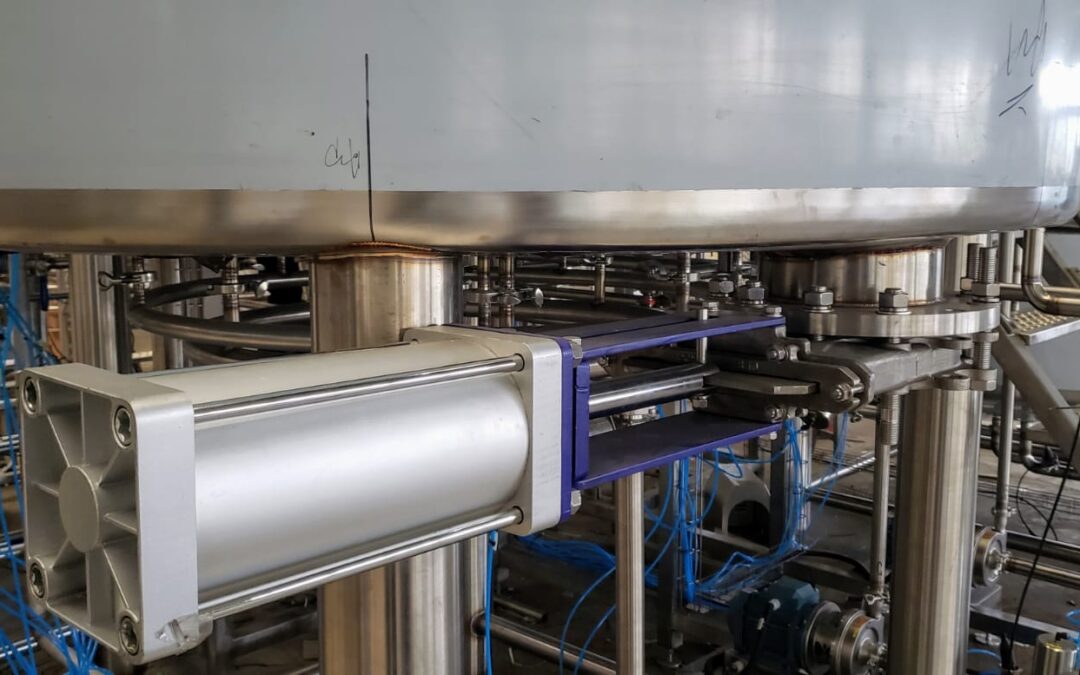The craft beer industry has been booming in recent years, with breweries of all sizes popping up across the globe. However, not all brewers have the luxury of ample space for their operations. Many find themselves working with limited square footage, which can pose challenges when it comes to optimizing efficiency and functionality in the brewhouse. In this blog, we’ll explore innovative solutions for brewers looking to maximize their production capabilities in tight spaces. Specifically, we’ll delve into the implementation of gravity sinks, hydraulic knives for fast dough-outs, and lab stations attached to the side of the brewhouse.
Gravity Sinks for Efficient Liquid Handling
One of the key considerations in any brewery, regardless of size, is the management of liquid waste. In a compact brewhouse, every square inch counts, making it essential to minimize the footprint of equipment and processes. Gravity sinks are a valuable addition to any small-scale brewery for several reasons:
Space-Saving Design: Gravity sinks are typically designed to fit into tight spaces, utilizing vertical space efficiently. They allow for the collection and disposal of liquid waste without requiring extensive floor space.
Cost-Efficient: Gravity sinks are a cost-effective alternative to more complex liquid handling systems. They require minimal maintenance and are relatively easy to install, making them ideal for breweries on a budget.
Environmental Benefits: Efficient liquid waste management not only conserves space but also promotes environmental sustainability. Gravity sinks help separate solids from liquids, making it easier to dispose of waste responsibly and potentially even recycle wastewater.
Hydraulic Knives for Fast Dough Outs
Efficiency in the brewhouse is paramount, regardless of the available space. One area where time and labor can be optimized is in the dough-out process. This is where hydraulic knives come into play:
Space-Efficient Dough-Outs: Traditional manual dough-outs can be space-consuming and time-intensive. Hydraulic knives are designed to streamline this process by quickly and efficiently removing spent grain from the mash tun, reducing downtime and freeing up valuable space for other tasks.
Improved Operator Safety: Hydraulic knives also enhance safety by automating a potentially hazardous process. This reduces the risk of injury and allows brewery staff to focus on other critical tasks.
Consistent Quality: Ensuring consistent grain removal is vital for maintaining the quality and repeatability of your brews. Hydraulic knives deliver uniform results, contributing to a more reliable brewing process.
Lab Stations Attached at the Side
Maintaining quality control and consistency is essential for any brewery, and having a dedicated space for quality testing is crucial. In tight spaces, a solution is to integrate lab stations into the brewhouse layout:
Streamlined Workflow: Placing lab stations within the brewhouse reduces the time and effort required to transfer samples for analysis. This integration creates a more seamless workflow, reducing the need for extensive space for a separate laboratory.
Real-Time Monitoring: Lab stations can be equipped with tools for real-time quality analysis, allowing brewers to monitor critical parameters like pH, gravity, and temperature throughout the brewing process. This ensures immediate corrective action if needed.
Quality Assurance: Maintaining a dedicated space for quality control helps uphold the brewery’s commitment to producing high-quality beer consistently. It’s a critical component of brand reputation and customer satisfaction.
Creating enhanced brewhouse functionality in tight spaces requires a thoughtful approach to equipment selection and layout. Gravity sinks, hydraulic knives, and integrated lab stations are just a few examples of innovative solutions that can help brewers make the most of limited space while maintaining the highest standards of quality and efficiency. As the craft beer industry continues to thrive, adaptability and creativity in optimizing brewery operations are key to success, regardless of space constraints.

